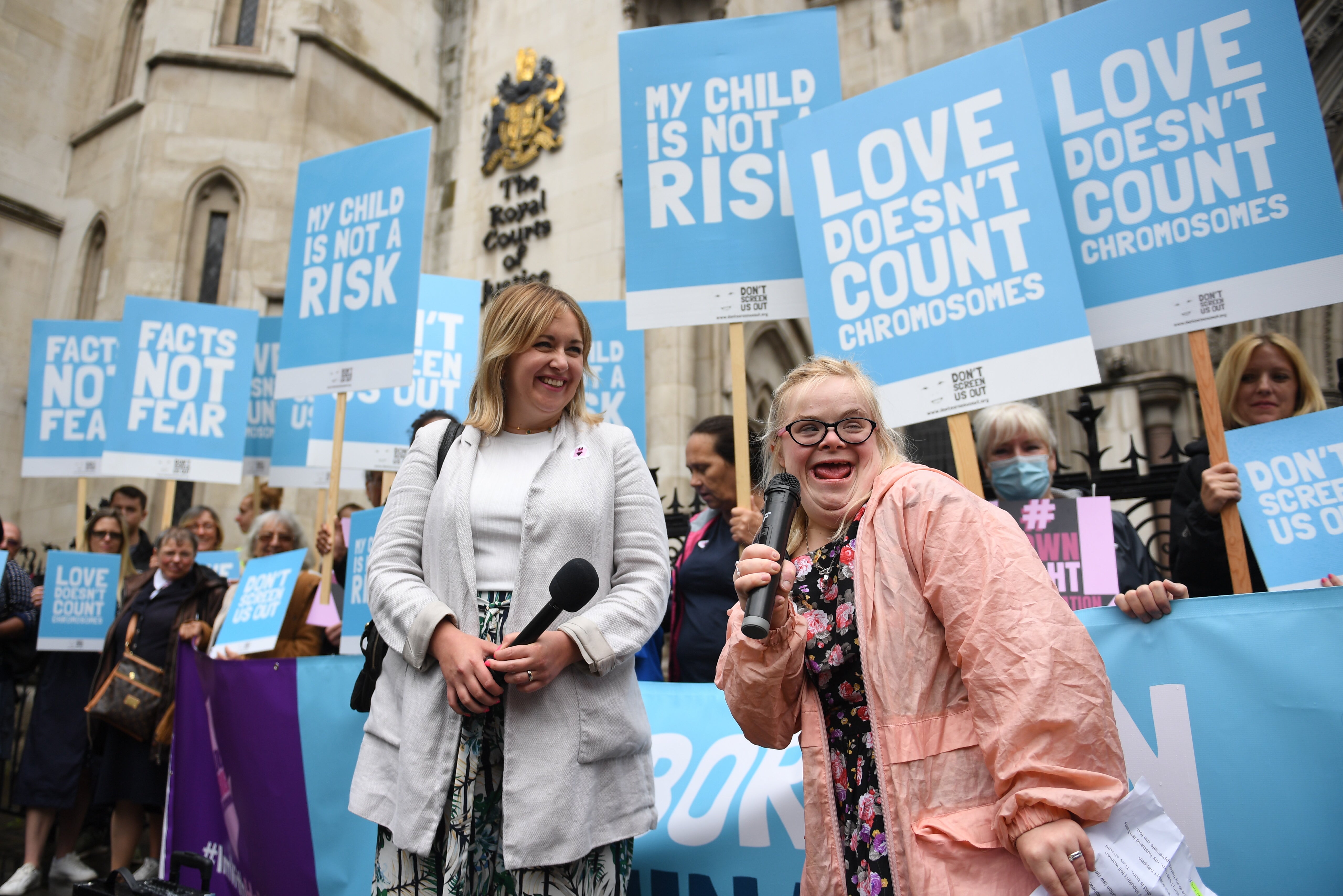Woman with Down’s syndrome challenges abortion law at the High Court
Heidi Crowter, 26, says existing legislation is ‘downright discrimination’

Your support helps us to tell the story
From reproductive rights to climate change to Big Tech, The Independent is on the ground when the story is developing. Whether it's investigating the financials of Elon Musk's pro-Trump PAC or producing our latest documentary, 'The A Word', which shines a light on the American women fighting for reproductive rights, we know how important it is to parse out the facts from the messaging.
At such a critical moment in US history, we need reporters on the ground. Your donation allows us to keep sending journalists to speak to both sides of the story.
The Independent is trusted by Americans across the entire political spectrum. And unlike many other quality news outlets, we choose not to lock Americans out of our reporting and analysis with paywalls. We believe quality journalism should be available to everyone, paid for by those who can afford it.
Your support makes all the difference.A woman with Down’s syndrome is taking the government to court in a bid to overturn legislation which allows babies with the condition to be aborted at any stage before birth.
In England, Scotland and Wales, terminations are permitted beyond the general 24-week time limit if there is a “substantial risk” the child will be born with a serious physical or mental disability.
Heidi Crowter, from Coventry, says the law in its current form is “not fair”.
“People like me are considered to be ‘seriously handicapped’, but I think using that phrase for a clause in abortion law is so out of date,” she said.
The 26 year-old added: “I hope we win. People shouldn’t be treated differently because of their disabilities, it’s downright discrimination.”
Her comments come after the UN Committee on the Rights of Persons with Disabilities urged the British government to update its abortion laws.
Maire Lea-Wilson, 33, whose son Aidan has Down’s syndrome, is bringing the case to the High Court alongside Ms Crowter, both of whom are supported by the campaign group Don’t Screen Us Out.
She said: “I have two sons that I love and value equally, but the law does not value them equally.
“This is wrong and so we want to try and change that.”
Ms Lea-Wilson added that the case is not about “the rights and wrongs of abortion”.
Their position was supported by several Church of England bishops, who released a statement saying the law needed to change.
“There is something profoundly disturbing in our current contradictory stance which says that people living with disability are valued, respected and cherished, but that disability in and of itself represents a valid ground for abortion,” they wrote.
Before the hearing started on Tuesday morning, Ms Crowter and Ms Lea-Wilson held a demonstration outside the Royal Courts of Justice in London, with protesters carrying placards which read “love doesn’t count chromosomes”.
Lawyers representing the pair will argue that the existing legislation is unlawfully discriminatory, as it unfairly singles out certain groups.
The landmark hearing is expected to run for two days, finishing on Wednesday afternoon.
Additional reporting from PA
Join our commenting forum
Join thought-provoking conversations, follow other Independent readers and see their replies
Comments